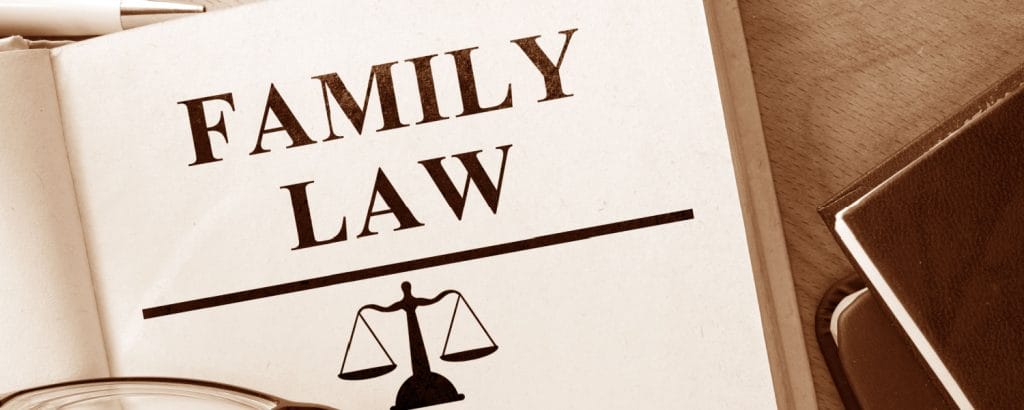Divorce is a complex process that involves the division of assets, property, and financial resources. One of the significant assets often subject to division during divorce is a pension or retirement plan. Because of this, clients sometimes ask “can my ex-wife claim my pension years after divorce? In this article, we will explore the legal principles and circumstances under which an ex-spouse may be entitled to a share of your pension even years after your divorce.
To learn more about what spouses are entitled to in a divorce, check out “What Is a Non-Working Spouse Entitled to in a Divorce?”

Understanding the QDRO
To answer the question of whether your ex-wife can claim your pension after divorce, we must first understand the role of a Qualified Domestic Relations Order (QDRO). A QDRO is a court order that establishes an ex-spouse’s right to receive a portion of your retirement benefits, including pensions, 401(k) plans, and other qualified retirement accounts. Therefore, the short answer to the big question in this article is simply: yes.
This does not take into account the full picture, so keep reading to learn more.
1. The QDRO Process
During divorce proceedings, if you and your ex-spouse agree to or the court orders the division of your pension, a QDRO is typically prepared. This document outlines the terms and conditions for the division of retirement benefits. Once the QDRO is approved by the court and the retirement plan administrator, it becomes a legally binding order. A QDRO can also be approved through mediation.
2. Time Sensitivity of QDROs
One crucial point to consider is that QDROs should ideally be prepared and finalized during the divorce process. However, if it was not addressed at that time or if the retirement benefits were not vested or mature at the time of divorce, it is still possible for your ex-wife to claim a share of your pension years later.
3. Vesting and Maturation
The timing of when your ex-spouse can claim a portion of your pension depends on the vesting and maturation of the retirement plan. Vesting refers to the point at which you become eligible to receive retirement benefits, typically after a certain number of years of service. Maturation is when the pension fully matures and becomes payable.
If your pension was not vested or had not matured at the time of your divorce, your ex-spouse may need to wait until it becomes eligible for distribution before she can make a claim. This means that even years after your divorce, they may have a valid legal claim to a portion of your pension once it vests or matures.

4. The Impact of State Laws
It’s important to note that state laws play a significant role in determining how pensions are divided in divorce cases. Some states follow community property principles, where marital assets, including retirement benefits, are typically divided equally between spouses. Other states, like Illinois, use equitable distribution, which involves a fair but not necessarily equal division of assets based on various factors such as the length of the marriage, the income of both spouses, and more.
The specific laws in your state can affect whether your ex-spouse can claim your pension years after divorce and the process they must follow to make a claim.
5. Changing Circumstances
In some cases, changing circumstances can lead to your ex-spouse seeking a share of your pension years after the divorce. For example:
- If they were awarded a share of your pension in the divorce decree but did not claim it at the time, they may decide to pursue it later.
- If you were ordered to pay alimony or spousal support, and you fall behind on payments, they may seek to claim her portion of your pension as an alternative means of obtaining the support to which they are entitled.
- If you remarried and your new spouse also has a claim to your pension, disputes may arise regarding the distribution of retirement benefits.
6. Protecting Your Interests
To protect your interests and avoid potential disputes over your pension years after divorce, consider taking the following steps:
- Ensure that all financial agreements, including the division of retirement benefits, are clearly outlined in the divorce decree.
- Comply with court orders and any required QDROs during the divorce process.
- Keep thorough records of your pension and retirement account statements.
- Consult with a qualified attorney to understand your rights and obligations regarding pension division in your state.

Mediation
Another option for couples looking to get a divorce is mediation. Mediation involves a third party negotiator that works to reach a solution to problems in divorce with both parties and their attorneys. Through mediation, you can reach a solution to dividing pensions and retirement accounts. This solution could involve both parties keeping their own pensions, sharing accounts, or buying out of another party’s claim to the pension. You can find helpful mediation forms and information on your local county courthouse’s website.
To learn more about mediation and its benefits during divorce proceedings, check out “10 Benefits of Divorce Mediation.”
Conclusion: Can My Ex-Wife Claim My Pension Years After Divorce?
In summary, it is possible for your ex-wife, or ex-husband, to claim a share of your pension years after divorce, especially if the retirement plan vests or matures after the divorce is finalized. The division of retirement benefits is a complex legal matter that depends on various factors, including state laws and the specific circumstances of your case. To protect your interests and ensure a fair resolution, consult with a knowledgeable attorney, like those at KGN Law Firm, who can guide you through the process and help you understand your rights and obligations regarding pension division.
MEET WITH AN ILLINOIS FAMILY LAW ATTORNEY TODAY
The Family Law attorneys at Koth Gregory & Nieminski understand that your family is the top priority, which is why we offer SAME-DAY APPOINTMENTS. If you need a divorce or other family law services, you can schedule your first meeting through our online appointment calendar. We look forward to meeting you.
Disclaimer: This article (Can My Ex-Wife Claim My Pension Years After Divorce?) may contain information that is outdated as Illinois law continuously evolves. Meeting with an experienced family law attorney is the best way to ensure you are receiving the most current information answering the question Can My Ex-Wife Claim My Pension Years After Divorce?

Published by Dustin Koth on July 16, 2024
